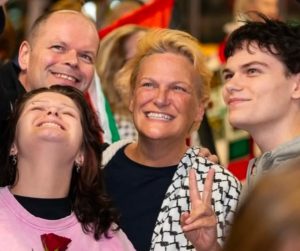After a 10-month-old crisis, it is now self-evident that geopolitical balances and real-politik principles cannot any longer have primacy over democracy and respect for human rights. Since the beginning of the protests in March 2011, Syria has witnessed massive violations of human rights by Syrian military and security forces. Since then, pervasive crimes against humanity have engulfed Syrian towns and villages; while the regime continues to repress its citizens brutally, the international community is becoming increasingly aware that the wind of change cannot be reversed and that the fundamental demands of the Arab Spring – sparked one year ago in Tunisia – need to be supported and defended also in Damascus.
The United Nations Report of the Independent International Commission of Inquiry on the Syrian Arab Republic documented a multitude of violations, including summary execution, arbitrary arrest, enforced disappearance, torture, rape and other forms of sexual violence, and violations of children’s rights. The report, based on 223 victim and witness interviews, clearly documents how the Syrian security apparatus has committed crimes against humanity during the brutal repression of the peaceful demonstrations of civilians against the Assad regime.
Despite repeated appeals to Assad government to stop the violent crackdown on protesters from International and Regional Organisations, the cause of peace and security so far has not being served. Thus far, Syrian violent repression and ongoing violation of human rights and fundamental freedoms has produced thousands of refugees, detainees and more than two thousand deaths, according to the UN. The Syrian regime’s broken promises of collaboration and stopping the massive human rights violations were almost certainly made only to delay and deceive the international community from itself taking coherent measures to stop the violations. Despite many requests – from the United Nations, the European Union, the Arab League and many Western and Arab countries – Syrian President Bashar al-Assad has failed to engage in dialogue and failed to deliver the promised democratic reforms.
The International Community has a huge stake in the outcome of the Syria crisis due to deep divisions in international actors’ views, as demonstrated by the dual-veto cast by Russia and China to the UN Security Council draft resolutions proposed in October 2011 and on Saturday 5 February 2012 in support of an Arab League initiative demanding that the Syrian leader steps down and a deep process of transition to democracy be initiated.
By opposing a legally binding UN Security Council resolution that strongly and unequivocally condemns the brutal governmental repression and human rights violations in Syria, Russia and China bear a moral and political responsibility for the ongoing bloodshed. Instead of hearing the calls of the Syrian people for fundamental freedoms, human rights and a political process that, for the first time ever, could enable democratic values, liberal institutions and open government within the borders of modern Syria, they provide their blessing to the regime of Bashar al-Assad’s license to kill with total impunity.
The democratic and popular revolutions that swept the Middle East and North Africa have profoundly changed the political landscape of that region, which cannot any longer be held hostage by external actors playing a deadly chess-game over the local populations. Syria’s future needs to be shaped by those brave men and women that for years have faced persecution and imprisonment at the hands of Assad’s regime and that today are killed in the squares and streets of Damascus while the international community decides what to do.
While we hope the international community will soon be able to set aside national interests and geopolitical calculations in order to overcome its current diplomatic failure and enforce its responsibility to protect the civilian population in Syria, individual states and regional actors such as the European Union should immediately take all necessary measures to exert pressure on the Syrian regime and to force an end to the brutal crackdown, including by stepping up tougher diplomatic, economic and financial sanctions. Sound and effective accountability and monitoring mechanisms for violations of fundamental individual rights must also be put in place, alongside the prosecution of crimes against humanity, in order to allow an inclusive political process of transition towards democracy. To that end, the Office of High Commissioner for Human Rights (OHCHR) and the Commission of Inquiry dispatched by the Human Rights Council should be granted unhindered and independent access to all parts of the country to ensure impartial investigations of all alleged violations committed.
Syria is the test case for the international community to support and reinvigorate the Arab Spring. If violence will not cease, if the regime will not fall, if the men and women that are fighting and facing the brutal face of an ominous regime will be forgotten, the international community would have set a tragic precedent that will put in danger not only the recent democratic gains in Tunisia and Egypt, where decades of tyranny and terror have been swept away by strong popular demonstrations, but also its own capacity to stand, protect and expand those democratic principles enshrined within International Treaties and Covenants.
* Gianluca Eramo is the MENA Democracy Program Coordinator and head of New York Office of NPWJ




